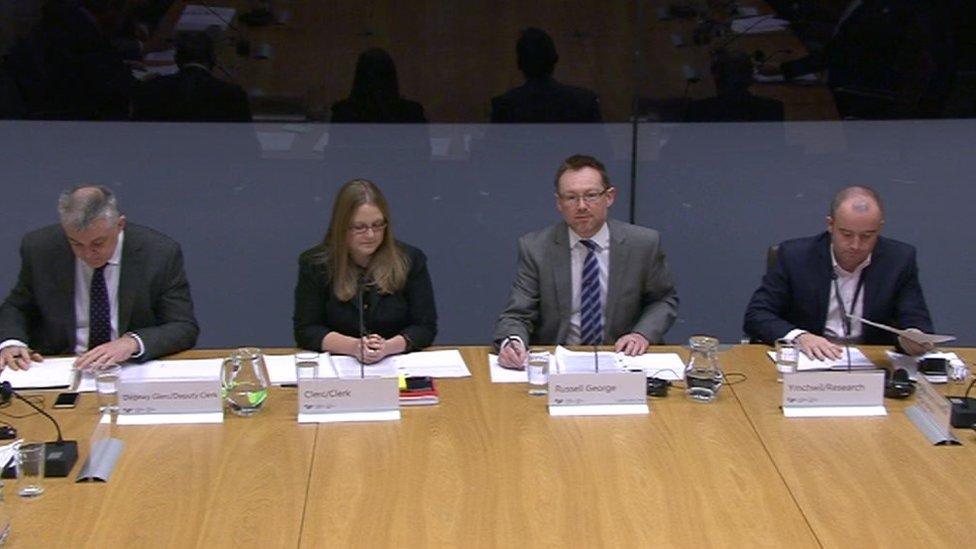Neil McEvoy expulsion reopens committee 'key positions' row
- Published

Committee meetings take evidence from ministers, scrutinise legislation and hold inquiries
The expulsion of Neil McEvoy from Plaid Cymru's assembly group has reopened a row over which parties hold key positions on assembly committees.
Plaid Cymru has three assembly members chairing committees - one more than the Tories - despite having fewer AMs.
Tory AM Paul Davies said the situation was unacceptable and the action against Mr McEvoy should settle the issue.
But Plaid said the allocation should reflect the election result.
The Plaid Cymru group informed Mr McEvoy he was permanently expelled on Tuesday.
Speaking afterwards, Mr Davies said: "Confirmation of Neil McEvoy's permanent expulsion from the Plaid group should settle this matter once and for all.
"For a smaller party to hold more committee chairs sets a dangerous precedent for the future of this institution, and it is our hope that Plaid Cymru will now reflect on this matter."
Which AMs take up committee chair positions is decided by an assembly ballot, but the numbers of positions parties get is meant to reflect the balance of the groups in the Senedd chamber.
After the last assembly election, Labour was given six positions, Plaid Cymru three, the Tories two and UKIP one.
But since then Plaid Cymru has gone from having 12 AMs to 10, while the Conservatives climbed from 11 to 12 with Mark Reckless added to their ranks, making the Tories the second largest group after Labour.
Paul Davies said Plaid was setting a "dangerous precedent"
Despite Presiding Officer Elin Jones telling senior AMs last year the current allocation did not comply with assembly rules, the parties have failed to come to an agreement.
In an assembly report last year, when Mr McEvoy was suspended, former Labour chief whip Jane Hutt was quoted as having raised the question of the permanence of the balance of AMs, suggesting Mr McEvoy could have returned to the Plaid Cymru group.
A spokeswoman for the Plaid Cymru group said: "The Conservatives seem determined to undermine the reasoning for having chairs directly and openly elected by the whole assembly.
"Introduced for the first time in the assembly, the purpose is to give stability to the important work of committees and ensure that chairs can't be undermined by the actions of others, be that party leaders using powers of patronage or AMs leaving or joining new groups. "
- Published18 October 2017
- Published20 June 2017